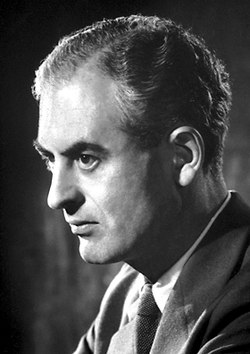Peter Medawar Quote
How have people come to be taken in by The Phenomenon of Man? We must not underestimate the size of the market for works of this kind [pseudoscience/'woo'], for philosophy-fiction. Just as compulsory primary education created a market catered for by cheap dailies and weeklies, so the spread of secondary and latterly tertiary education has created a large population of people, often with well-developed literary and scholarly tastes, who have been educated far beyond their capacity to undertake analytical thought.
Peter Medawar
How have people come to be taken in by The Phenomenon of Man? We must not underestimate the size of the market for works of this kind [pseudoscience/'woo'], for philosophy-fiction. Just as compulsory primary education created a market catered for by cheap dailies and weeklies, so the spread of secondary and latterly tertiary education has created a large population of people, often with well-developed literary and scholarly tastes, who have been educated far beyond their capacity to undertake analytical thought.
Related Quotes
About Peter Medawar
Sir Peter Brian Medawar (; 28 February 1915 – 2 October 1987) was a British biologist and writer, whose works on graft rejection and the discovery of acquired immune tolerance have been fundamental to the medical practice of tissue and organ transplants. For his scientific works, he is regarded as the "father of transplantation". He is remembered for his wit both in person and in popular writings. Richard Dawkins referred to him as "the wittiest of all scientific writers"; Stephen Jay Gould as "the cleverest man I have ever known".
Medawar was the youngest child of a Lebanese father and a British mother, and was both a Brazilian and British citizen by birth. He studied at Marlborough College and Magdalen College, Oxford, and was professor of zoology at the University of Birmingham and University College London. Until he was partially disabled by a cerebral infarction, he was Director of the National Institute for Medical Research at Mill Hill. With his doctoral student Leslie Brent and postdoctoral fellow Rupert E. Billingham, he demonstrated the principle of acquired immunological tolerance (the phenomenon of unresponsiveness of the immune system to certain molecules), which was theoretically predicted by Sir Frank Macfarlane Burnet. This became the foundation of tissue and organ transplantation. He and Burnet shared the 1960 Nobel Prize in Physiology or Medicine "for discovery of acquired immunological tolerance".
Medawar was the youngest child of a Lebanese father and a British mother, and was both a Brazilian and British citizen by birth. He studied at Marlborough College and Magdalen College, Oxford, and was professor of zoology at the University of Birmingham and University College London. Until he was partially disabled by a cerebral infarction, he was Director of the National Institute for Medical Research at Mill Hill. With his doctoral student Leslie Brent and postdoctoral fellow Rupert E. Billingham, he demonstrated the principle of acquired immunological tolerance (the phenomenon of unresponsiveness of the immune system to certain molecules), which was theoretically predicted by Sir Frank Macfarlane Burnet. This became the foundation of tissue and organ transplantation. He and Burnet shared the 1960 Nobel Prize in Physiology or Medicine "for discovery of acquired immunological tolerance".
